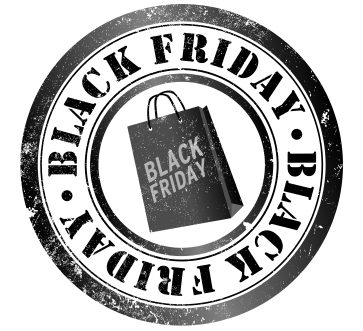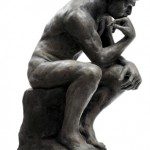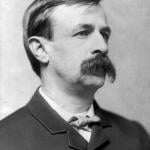 I have come across a few answers as to why people call the day after Thanksgiving “Black Friday.” One answer is that “Black Friday” was coined by the Philadelphia Police Department based on the overwhelming and chaotic influx of traffic and pedestrian activity associated with Christmas shopping on the Friday immediately following Thanksgiving. “Black Friday” is also associated with the economic upturn involving the shopping cycle leading to Christmas where retailers turn from being in the red to going in the black and making profits.
I have come across a few answers as to why people call the day after Thanksgiving “Black Friday.” One answer is that “Black Friday” was coined by the Philadelphia Police Department based on the overwhelming and chaotic influx of traffic and pedestrian activity associated with Christmas shopping on the Friday immediately following Thanksgiving. “Black Friday” is also associated with the economic upturn involving the shopping cycle leading to Christmas where retailers turn from being in the red to going in the black and making profits.
I must confess that when I came across the first explanation, my mind went back to the “Malcolm X” movie where Detroid Red (later Malcolm X) is told in prison that “black” is always associated with negative factors and forces in the English language and white is associated with positive factors and forces. I am not claiming that the Philadelphia Police Department had such connotations in mind, but only that the term “black” has often been used for negative depictions. Given the negative connotations associated with the term, it is important to problematize the terms “white and black” and other colors in the economy, in Sunday School literature (where “black” is often associated with sin and evil and “white” with holiness and righteousness), and in our treatments of Christmas. As much as I like the movie “White Christmas” with Bing Crosby and Danny Kaye, a remake of the movie would be best in living color—in other words, not so white and positively inclusive of black. Moreover, it would be a whole lot more positive and wholesome than the 1974 movie “Black Christmas,” which was about the terrorizing of a sorority house during Christmas break (the same goes for the 2006 version).
At least the term “black” is often construed positively in economic terms: “black” is associated with profit. Of course, such positive economic connotations are not universally so, as illustrated in “Black Market.” Moreover, while I want to problematize the terminology, I also want to problematize the subtle or not so subtle reality that often lurks behind economic “Black Friday” itself–inordinate consumption. A friend once jokingly said to me: “Save the world; spend money.” Not everyone is joking, though. So many if not all of us today put more stock in the stock market than the biblical narrative’s kingdom calculus: “But seek first the kingdom of God and his righteousness, and all these things will be added to you” (Matthew 6:33, ESV) And is there not more than humor behind the post-9/11 New Yorker cartoon caption that said, “I figure if I don’t have that third martini, then the terrorists win”? As funny as it is, the prevailing worldview that makes it sound so funny is not funny at all.
What is not so black and white about consumerism pertains to how we have become increasingly dependent on it as a society, and perhaps as far-reaching as the majority of the globe. While consumption is a part of our daily lives, inordinate consumption is the real problem, as illustrated in the Christmas movie “What Would Jesus Buy?” As a culture, we are addicted to consumption, as many have argued. However, if we stop excessive shopping, what would happen to our economy? And if the economy takes another downturn, what will happen to the poor, who appear to be impacted most severely each time the economy takes a nose dive? I have written on this subject elsewhere: “Consumerism, the Third Martini and the Terrorists.” To me, the answer is not in trickle-down economics, but trickle-up economics, as a blog post that will appear in mid-December will highlight. Even so, things aren’t so black and white. Even white and black aren’t so black and white.
This piece is cross-posted at The Institute for the Theology of Culture: New Wine, New Wineskins and at The Christian Post.













